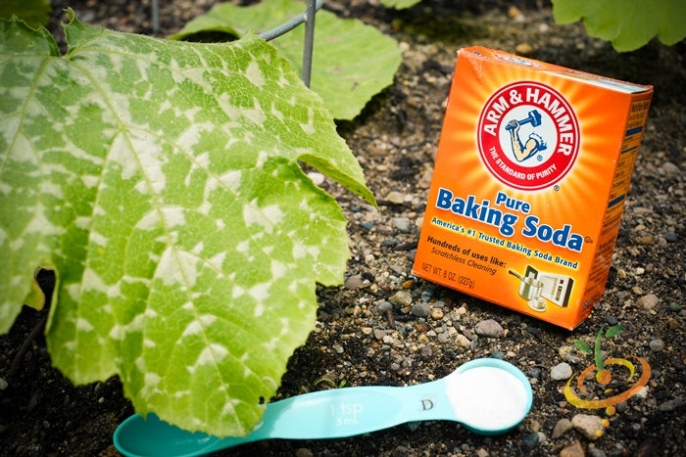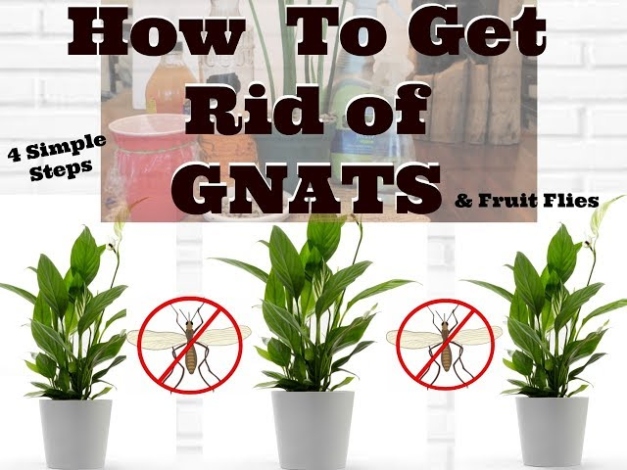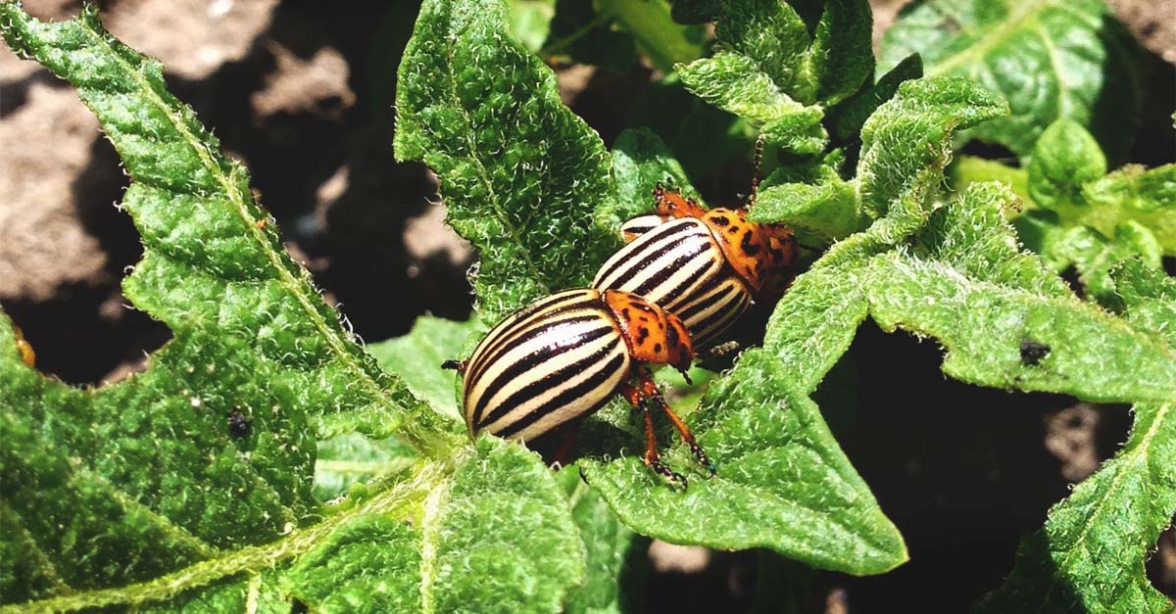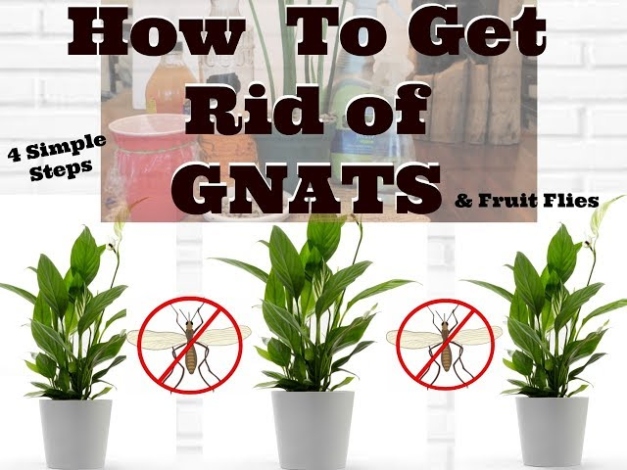How to Get Rid of Slugs on My Plants
What do you mean by slugs on plants?
Slugs are slimy creatures that can wreak havoc on your garden plants by eating away at the leaves and stems. They are particularly active during the night and on damp, rainy days. If you notice holes in your plant leaves or a slimy trail on the ground, chances are you have a slug problem.
How can I identify slugs on my plants?
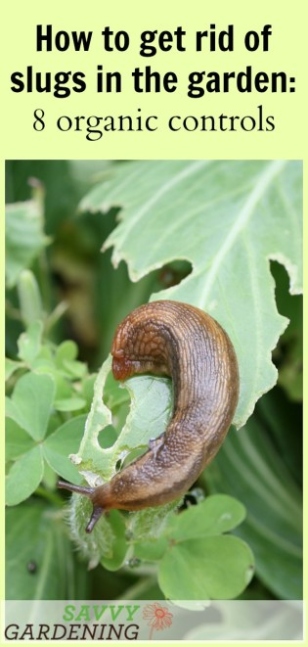
Image Source: i0.wp.com
Slugs are usually easy to spot due to their slimy appearance and slow movement. They come in various colors such as brown, black, or grey. You may also see their silvery slime trails on the ground or on the leaves of your plants.
What is known about slugs and their behavior?
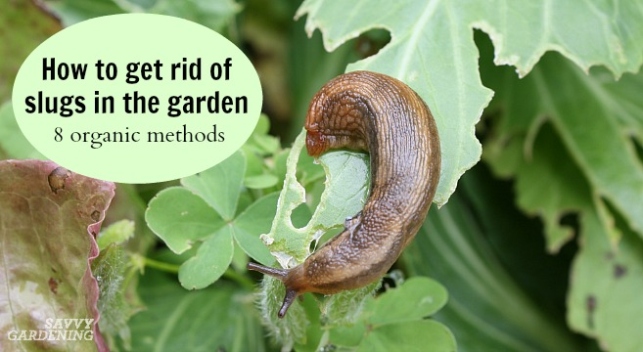
Image Source: savvygardening.com
Slugs are nocturnal creatures that feed on a wide variety of plants, making them a common pest in gardens. They are attracted to moist and shady environments, which is why they are often found hiding under rocks, mulch, or in damp soil. Slugs reproduce quickly, laying eggs in moist areas and emerging as small larvae.
What are the solutions to get rid of slugs on plants?
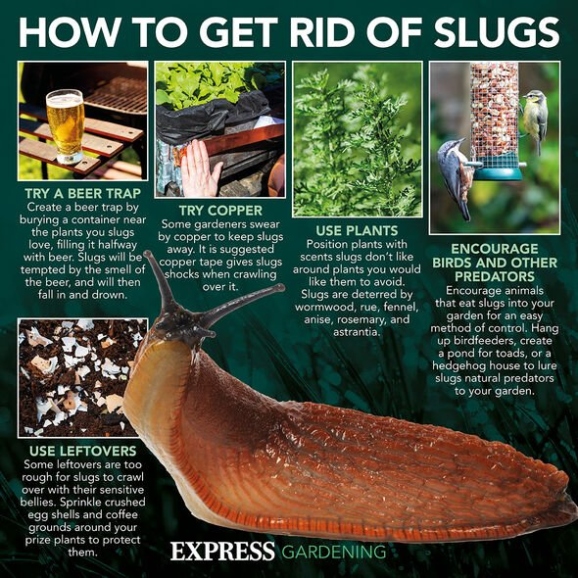
Image Source: express.co.uk
There are several effective ways to control and eliminate slugs in your garden. One option is to handpick the slugs off your plants and dispose of them in a bucket of soapy water. You can also create barriers around your plants using copper tape or diatomaceous earth to deter slugs from crossing. Additionally, setting up beer traps or using natural predators like ducks or nematodes can help reduce the slug population in your garden.
Information on natural remedies for slug control
There are several natural remedies that can help control slug populations in your garden. One popular method is to sprinkle crushed eggshells or coffee grounds around your plants, as the sharp edges deter slugs from crawling over them. Another option is to place citrus peels or cucumber slices near your plants, as slugs are repelled by the smell. You can also plant slug-resistant varieties of plants or use natural predators like birds or toads to keep the slug population in check.
How to prevent slugs from returning to your plants
Preventing slugs from returning to your plants requires ongoing vigilance and maintenance. Keep your garden clean and free of debris, as slugs are attracted to damp and dark areas. Water your plants in the morning rather than at night to reduce moisture levels, and avoid over-fertilizing your plants, as this can attract slugs. Regularly inspect your plants for signs of slug damage and take proactive measures to control any infestations before they get out of hand.
Conclusion
Getting rid of slugs on your plants can be a challenging task, but with the right strategies and techniques, you can effectively control and eliminate these pesky pests from your garden. By implementing natural remedies, creating barriers, and practicing good garden maintenance, you can enjoy a healthy and thriving garden free from slug damage.
FAQs
1. What plants are most susceptible to slug damage?
Plants that have tender leaves and stems, such as hostas, lettuce, and strawberries, are particularly vulnerable to slug damage.
2. Are there any chemical pesticides that can effectively control slugs?
While there are chemical pesticides available for slug control, they can be harmful to beneficial insects and other wildlife in your garden. It is recommended to use natural and organic methods whenever possible.
3. How often should I check my plants for slug infestations?
It is a good idea to regularly inspect your plants for signs of slug damage, especially after a rainfall or during the night when slugs are most active.
4. Will using salt to kill slugs harm my plants?
While salt can effectively kill slugs on contact, it can also harm your plants if applied directly to them. It is best to use other methods of slug control to avoid damaging your garden.
5. Can I attract natural predators like birds to help control the slug population in my garden?
Yes, by providing bird feeders, bird baths, and nesting boxes in your garden, you can attract birds that will feed on slugs and other pests.
6. Is it possible to completely eradicate slugs from my garden?
While it may be difficult to completely eradicate slugs from your garden, with proper management and control measures, you can significantly reduce their population and minimize damage to your plants.
7. What are some common signs of a slug infestation in my garden?
Some common signs of a slug infestation include holes in plant leaves, silvery slime trails on the ground, and chewed stems or fruit. If you notice these signs, it is important to take action to control the slug population in your garden.
how to get rid of slugs on my plants







